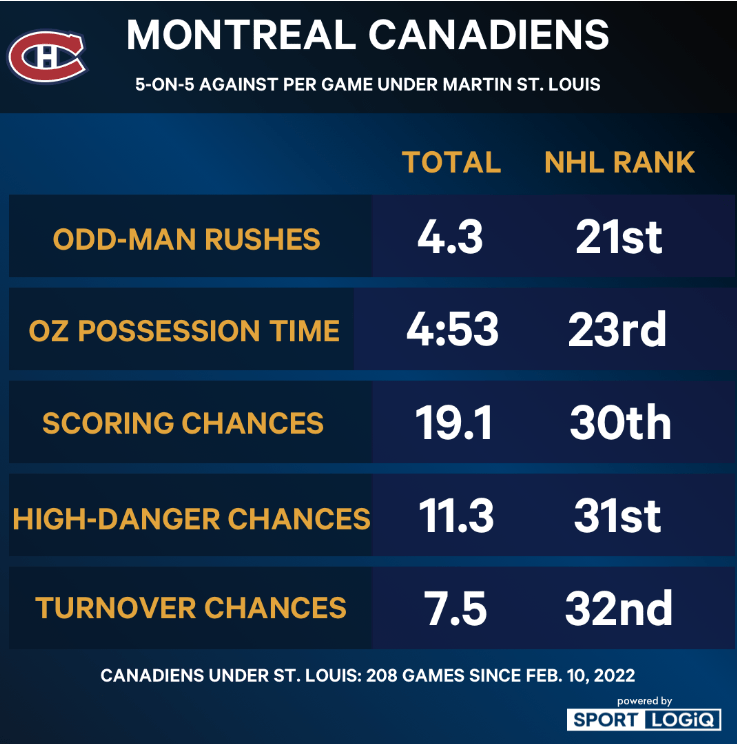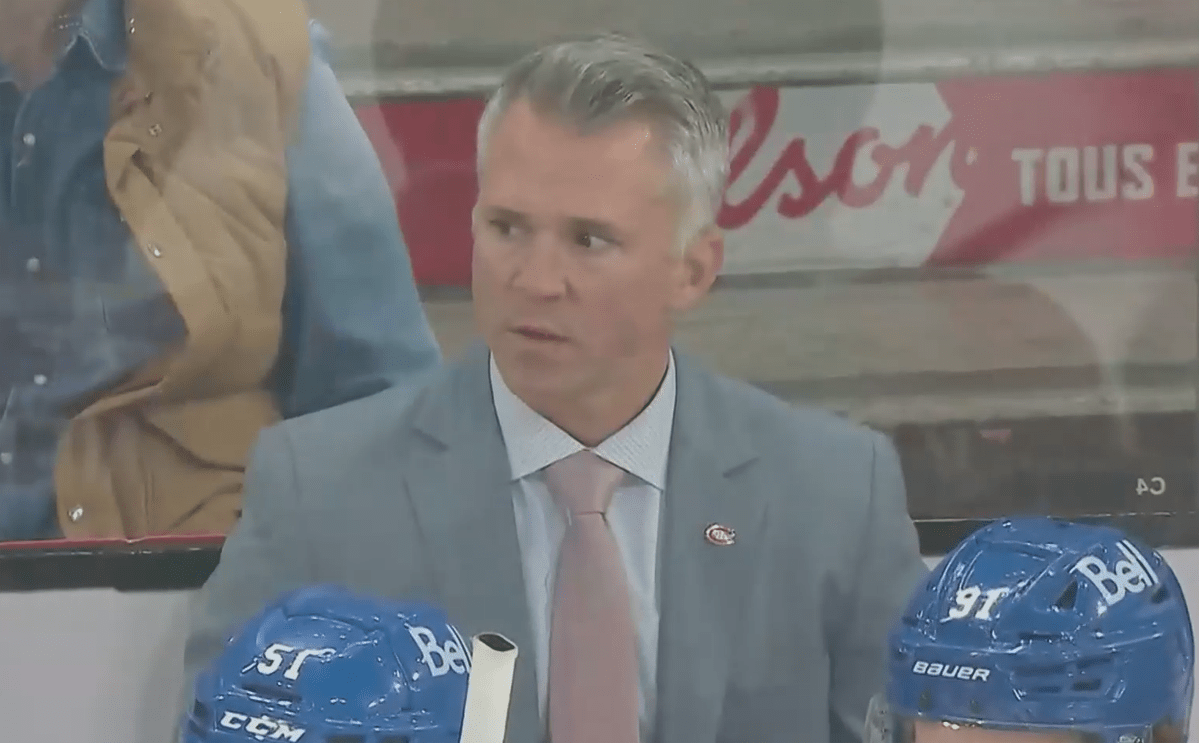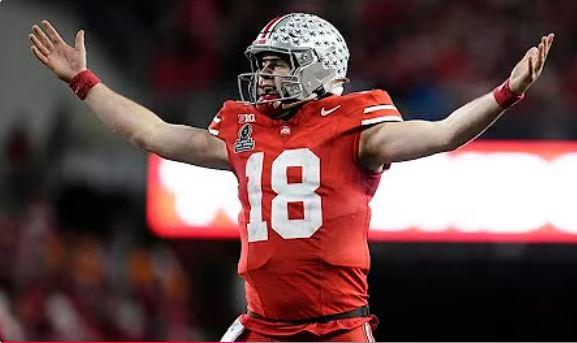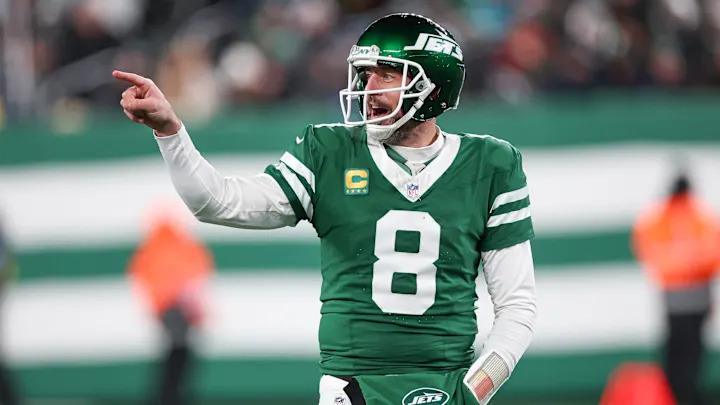Montreal Canadiens coach Martin St. Louis remarked last night, after the team lost 6-3 to Washington, that, “We threw up on ourselves” in the third period.
What he doesn’t know is that there were plenty of fans doing the same thing after some of the coaching decisions he made in that final period.
We all sat in disbelief when St. Louis promoted his most struggling forward, Christian Dvorak, to the top line for a shift seven minutes into the third period, but he went one further right after that when the Canadiens had a golden opportunity to get back into a game they now trailed 5-3. They had an extended 5-on-3, and the first thing that popped into my mind was: “Surely, they will get Hutson out for it THIS time.”
They did, and I felt good about their chances of converting until I saw that Joel Armia was one of the four other Habs skaters out on the ice. The best opportunity during this first shift 5-on-3 came when Nick Suzuki fed the puck over to Armia, who was stationed to the left of Washington goalie Charlie Lindgren. Armia missed the pass completely.
Should this have come as a surprise to St. Louis? A forward with one goal in 11 games this season? A forward who hasn’t scored a power-play goal since March of 2022?
Instat Hudl must have been in disbelief as well. I went there this morning to find Armia’s 5-on-3 shift, and they didn’t even include it as one of his shifts during the game. I had to find it from the “full game.”
Marty wasn’t finished. After that failed shift, and fans already cleaning up chunks from their bibless Habs jerseys in front of their TV sets, Marty said, “Hold my Molson,” and made the much-ballyhooed decision to replace Armia for the remainder of the 5-on-3 with… Dvorak.
In their last 261 games combined, Armia and Dvorak have scored one power-play goal. Slafkovsky has seven power-play goals in his last 75 games. Simple math tells you that he’s the guy who should have been on the ice with a two-man advantage. Sure – he isn’t filling the net so far this season, but neither are the other two.
Did Marty have particular analytics that told him Armia and Dvorak were the answers? Yes and no. There was no sound reason for Armia starting the 5-on-3. That one is strictly on the coaching staff and some sort of gut feeling that left many Habs fans feeling nauseated in their stomachs.
The faceoff stats do reveal, however, that Dvorak was much more likely to win a faceoff at the left dot than Suzuki. Dvorak has won 22 of 34 faceoffs (65 percent) in that spot this season. Suzuki has only taken seven draws in the left offensive zone and won just one of them (17 percent). Suzuki is 39 percent on faceoffs in the left offensive zone for his career—his lowest mark for any faceoff dot on the ice.
Gaining offensive possession from that faceoff was critical, considering that time was winding down on the two-man advantage, and Dvorak did win the draw. Unfortunately…he won the faceoff completely out of the zone, and the Canadiens never capitalized.
While getting Dvorak to take the faceoff from an analytical standpoint made sense, the fact that he remained on the ice after the puck cleared the zone was a giant mistake. Did the coaching staff not prepare for that scenario? Did they not advise him to come off of the ice if the puck cleared the zone? He had a clear opportunity to be substituted, and there were still 49 seconds remaining on the one-man advantage even if time was winding down on the 5-on-3.
One can’t help but wonder if a more experienced NHL coach wouldn’t have considered that possibility and advised Dvorak to come off of the ice if the puck cleared the zone. Were they afraid that his feelings might be hurt? Surely, a player who hasn’t scored in his last 15 games would understand why he would be pulled off of the ice in that circumstance.
The Jeff Gorton administration has been lauded for its “thinking outside the box” approach, and there have certainly been some positives in that regard. Gorton surprised many by choosing an anglophone player agent with no NHL management experience as his GM. Kent Hughes has made some excellent trades, and the club has been stellar at the draft table. Few doubt that the club has a bright future and is one of the most promising U25 groups in the NHL.
Marc Bergevin also made many shrewd trades during his time as GM and, in later years, accumulated high draft picks and improved his team’s drafting. However, one of the major criticisms of his management decisions was his coaching choices, and he got a lot of grief for that.
We are now almost three years into the HuGo regime, and at some point, we will also have to start judging Hughes’s coaching choices.
It has crossed my mind in recent weeks as the Canadiens continue to be the loosest defensive club in the league that perhaps Hughes needs to think INSIDE the box in that regard. There is a reason why NHL clubs hire at least one veteran NHL coach for their staff. Often, it is the head coach. Why? Experience. They have seen it all behind the bench. They are prepared for any situation because they have experienced it. We all learn from our mistakes, and until you have experienced that mistake, you aren’t always prepared for it to happen.
Going into this season, the Canadiens lacked a veteran NHL coach behind the bench. When Alex Burrows got bumped up to player development, my initial reaction was: “Great—they are finally going to add a veteran NHL coach to this fledgling staff.”
Not quite. Hughes chose instead to bring in St. Louis’ Vermont college coach from 30 years ago as his “consultant,” Roger Grillo. A coaching staff with 611 games of NHL coaching experience did not add another NHL veteran coach behind the bench. Grillo has never been on the bench for one NHL game.
The coach of the defending Stanley Cup champion Florida Panthers has 1860 games of coaching experience behind an NHL bench all by himself. Do you think that it wouldn’t have crossed Paul Maurice’s mind to tell Dvorak to get off of the ice after the draw?
Eleven games into the season, it is apparent that the NHL’s second-youngest club is struggling with a hybrid defensive system more suited to a veteran club. This is especially the case with a defence group that includes five youngsters. None of them have played more than 120 NHL games, and between them, they have played 400 NHL games.
Has the inexperienced Canadiens coaching staff made the right decision to employ a system where players switch from a man-on-man when the puck is high in the zone to a high-pressure zone system when the puck is down low?

The stats say that it’s not working. So, what is Hughes’s next step? Should he leave things alone and allow his young players to continue struggling and losing confidence?
We have seen a Buffalo organization for more than a decade accumulate high draft picks and build what many thought would be a future powerhouse. A team that was supposed to contend soon after selecting Jack Eichel second overall still hasn’t made the playoffs ten years later, mainly because the young core never learned how to win. Are the Canadiens destined for the same fate? If they keep languishing at the bottom of the standings, it’s not entirely out of the question. At some point, the young core needs to experience success. Right now – a team that Geoff Molson, Hughes, and Gorton all said should be in the mix is still standing on the edge of the bowl, teetering instead toward the countertop.
Maybe the answer is to bring in a veteran NHL coach into “the mix” to help stir up the ingredients and help Chef Martin achieve some success behind the bench. After starting his career with a .436 winning percentage in 212 games, the current coaching recipe makes us all feel a little sick.






